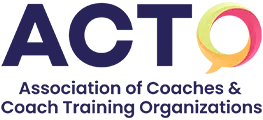Are we listening?
Chariti E Gent
This month, we celebrate International Women’s Day. As a coaching community, it is important to recognize and celebrate the contributions of women across the globe—both for ourselves and our clients. Equally important, we must acknowledge the role that intersectionality plays in the lives of many women. There is enormous pressure on women—particularly those who face challenges not just because of their gender but also because of their race, sexual identity, socioeconomic status, etc. As coaches we can choose to keep this in our awareness to deepen the experience for our clients; we must learn how to be increasingly sensitive and aware of these intersecting lines in their lives. Below, in the famous poem by Sojourner Truth, an African American, a slave, and a woman, we are reminded of the discrimination and inequity that many individuals face as they find themselves at the crossroads of identities. May it serve as a powerful reminder of the grace, courage, and resiliency of all women worldwide. After you read this, we encourage you to ask yourself:
How am I integrating notions of intersectionality in my own coaching practice?
How I am developing my coach training curriculum to be more culturally sensitive for all people?
How am I infusing a greater awareness regarding race, class, gender identity, etc. in my daily life?
AIN’T I A WOMAN?
by Sojourner Truth
Delivered 1851 at the Women’s Convention in Akron, Ohio
Well, children, where there is so much racket there must be something out of kilter. I think that ‘twixt the negroes of the South and the women at the North, all talking about rights, the white men will be in a fix pretty soon. But what’s all this here talking about?
That man over there says that women need to be helped into carriages, and lifted over ditches, and to have the best place everywhere. Nobody ever helps me into carriages, or over mud-puddles, or gives me any best place! And ain’t I a woman? Look at me! Look at my arm! I have ploughed and planted, and gathered into barns, and no man could head me! And ain’t I a woman? I could work as much and eat as much as a man – when I could get it – and bear the lash as well! And ain’t I a woman? I have borne thirteen children, and seen most all sold off to slavery, and when I cried out with my mother’s grief, none but Jesus heard me! And ain’t I a woman?
Then they talk about this thing in the head; what’s this they call it? [member of audience whispers, “intellect”] That’s it, honey. What’s that got to do with women’s rights or negroes’ rights? If my cup won’t hold but a pint, and yours holds a quart, wouldn’t you be mean not to let me have my little half measure full?
Then that little man in black there, he says women can’t have as much rights as men, ’cause Christ wasn’t a woman! Where did your Christ come from? Where did your Christ come from? From God and a woman! Man had nothing to do with Him.
If the first woman God ever made was strong enough to turn the world upside down all alone, these women together ought to be able to turn it back , and get it right side up again! And now they is asking to do it, the men better let them.
Obliged to you for hearing me, and now old Sojourner ain’t got nothing more to say.
